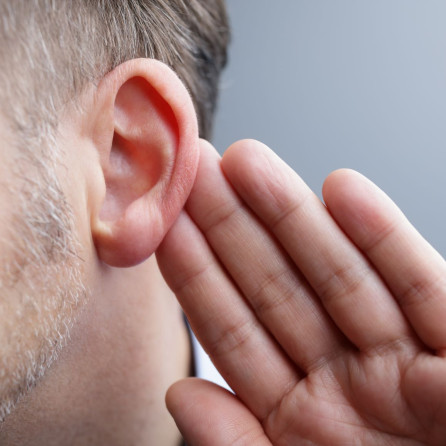Hearing loss is defined as the loss of hearing of at least 30 decibels (mild loss), and one or both ears can be affected. At a hearing loss of 30 decibels, a normal conversation would be about as half as loud as normal.
There are many causes of hearing loss; the two main types are conductive and sensorineural hearing loss. MS hearing loss is not a common MS symptom, but people with MS can experience sudden sensorineural hearing loss and problems with hearing. You can also become more sensitive to noise or have trouble understanding someone talking when there is noise in the background.
You might experience the following hearing problems:
-
Distorted sound
-
Increased sensitivity to noise (hyperacusis)
-
Tinnitus (a constant noise in the ear — a range of sounds are possible, but it is often a ringing or whistling sound)
Find out how changing your lifestyle could change your MS symptoms [2 minute read]
What to do if you experience hearing loss
MS hearing loss is rare. If you experience hearing problems you need to see a doctor in case they need to refer you to an ear, nose and throat specialist, to investigate the cause of your hearing loss. There are many other reasons why you might be experiencing hearing loss, such as medications, injury from a loud noise, other illnesses not related to MS or even ear wax build-up.
If your hearing loss is part of an MS relapse, then it will often return to normal or improve as the inflammation around the affected nerves reduces. A doctor can prescribe steroids to try to speed up the improvement. By following the OMS Program you can also help to improve other MS symptoms through diet and lifestyle changes. One of the steps within the program is exercise which can help strengthen your muscles, including your core, to help with balance problems.
If your hearing loss is long-term, an audiologist may be able to recommend a hearing aid. Sometimes public places can be fitted with ‘induction or hearing hoops’ which work with your hearing aid to reduce background sounds and noise. These loops can also be installed in your home if needed.
